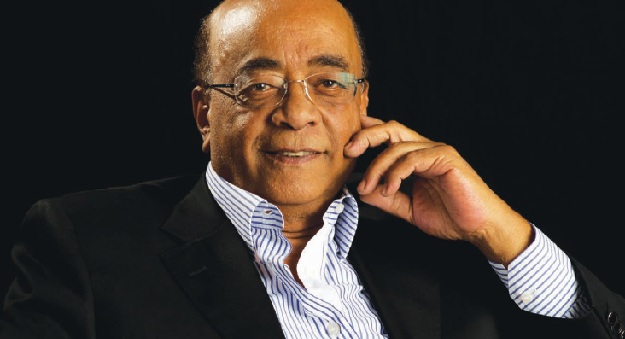
Over the last decade, Afro-pessimism has been replaced by a new narrative focusing on the opportunities which Africa offers rather than the challenges. It is a positive story which rests, above all, on the continent’s economic performance: a record of strong growth all the more remarkable given the global backdrop of crisis and stagnation. Investment is flowing into the continent at a level never seen before and Africa now finds itself labelled the New Frontier.
The growing global appetite for Africa’s rich natural resources such as oil and precious metals is, of course, a major driver of this growth and investment. But it is by no means the entire explanation. Countries with little natural wealth are also among the continent’s best performers.
Africa’s fast growing consumer market and its middle class are important assets. Fifteen years ago, when I talked about the potential for mobile telephones in Africa, I was seen as letting my heart rule my head. Now the continent has 650 million mobile subscribers, more than the US or European Union. They are at the heart of a communications revolution which is changing almost every aspect of life.
In fact, by many different measures, Africa is moving in the right direction. The continent’s growing prosperity is enabling countries to invest in improving health, education and infrastructure. Child mortality is falling rapidly. The number of children in school is increasing, and there is less conflict, fewer civil wars, and more democratic elections and peaceful transitions.
These factors provide the chance for Africa to reap the dividends from its greatest resource – the energy and potential of its people. The continent’s young population promises a rich demographic dividend in the coming decades, just as other regions experience a fall in people of working age.
But just as the gloomy picture once painted about Africa ignored progress and potential, there is a danger that the ‘New Frontier’ similarly overlooks barriers which need to be lifted.
Africa has talked long enough, for example, about the need to improve regional integration. Yet even now, only around 12 percent of Africa’s registered trade is within the continent compared to 63 percent between the countries of Western Europe. Without urgent action to remove trade barriers and improve cross-border infrastructure to allow markets to be built, economic progress will be slowed with some countries missing out on the opportunities on offer. African Heads of State have decided to create an African Common Market by 2017. What is now required is the political will and commitment to follow up and make it happen.
Africa’s growing inequality is another factor which threatens progress. Unless we find ways to share prosperity fairly, the social fabric could come under severe strain. This challenge is, of course, not restricted to Africa but without fairer and inclusive policies, the continent’s rapidly growing number of young people could become a source of stress rather than hope.
Key to tackling these challenges – and therefore Africa’s overall progress – are efforts to improve standards of governance across the continent.
The Ibrahim Index of African Governance (IIAG), set up to monitor and measure governance performance across the continent, shows that standards have improved overall over the last decade. It says a great deal about the continuing values of the Commonwealth that eight of the top ten countries ranked by the IIAG are members.
But the picture is uneven with progress on political participation, human rights and the rule of law disappointing, more noticeably so in the continent’s economic powerhouses. Africa might be becoming wealthier but in some places it is becoming less democratic and free. This trade-off is both dangerous and short-sighted.
I am, more than ever, an optimist about Africa. I believe the continent can help shape the new century. But we can’t take progress for granted once for all. Determined action to prevent a democratic deficit is the best way to ensure that, this time, Africa has indeed reached an historic turning point.





